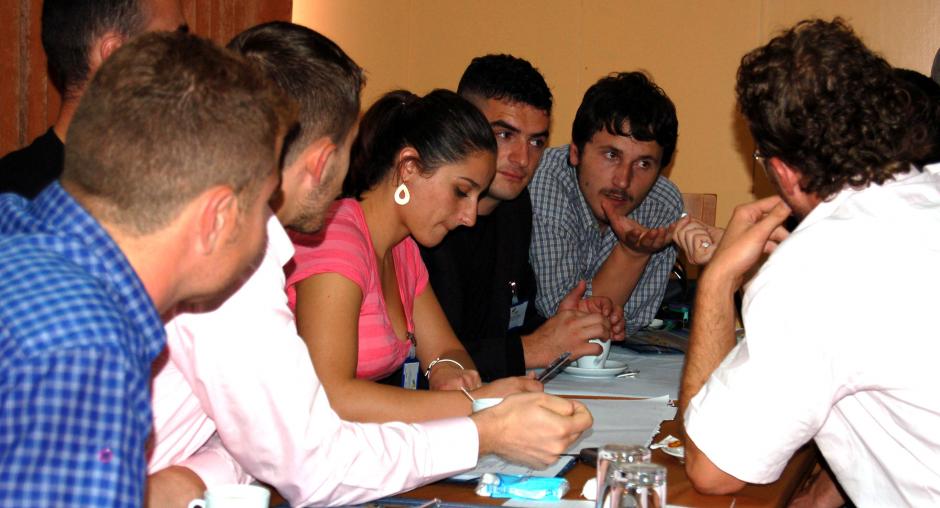Mission in Kosovo gets university students involved in regional education reform
As part of this process, the OSCE Mission in Kosovo is helping to strengthen contacts between youth, the media and women's groups from Kosovo, Serbia, Croatia, Bosnia and Herzegovina and the former Yugoslav Republic of Macedonia.
"Through our Civic Dialogue project, we aim to identify issues that are common to these specific interest groups and develop dialogue around them," says Maike Verhagen, a Democratization Officer with the Mission.
"We chose to concentrate on youth, the media and women because of their specific roles in society."
Re-establishing relations
The Mission's Civic Dialogue activities began in 2002 and were originally intended to help re-establish relations between non-governmental organizations (NGOs) in Kosovo and Serbia.
The first two such NGOs were the Mother Teresa Society in Pristina and the Centre for Regionalism in Novi Sad, which were given the job of forming a network of NGOs called the Civic Dialogue Initiative. Today, this network has more than 250 member organizations throughout the region.
The Civic Dialogue Initiative implements a number of local projects that benefit various communities in the region. At the end of each year, a conference is held where issues of common concern are debated. The most recent gathering was held in Pristina from 25 to 27 October 2006 and focused on higher education reform.
"We believe in dialogue and in gathering together civil society leaders to discuss topics of importance," says Zef Shala, Director of the Mother Teresa Society.
Hot topics
"Wherever you go in the Balkans these days, higher education reform and the Bologna Process are hot topics. That's why we decided to focus on students."
The Bologna Process deals with the harmonization of educational standards in preparation for the creation of the European Higher Education Area, which is foreseen for 2010. This includes more student participation in lectures and decision-making, as well as better student-professor relations and up-to-date curricula.
The aim is to standardize educational practices throughout Europe, enabling students to transfer more easily from one university to another and to have equal access to educational opportunities.
But at the recent Civic Dialogue conference, students from Pristina, Belgrade, Novi Sad, Podgorica, Skopje and Tetovo universities agreed that the current situation is far from ideal. Complaints ranged from a lack of quality teaching methods and staff to poor communication with professors.
"We saw that we all have similar problems, like old communist-type professors who run the universities and feel that they are not there for us, but that we are there for them," said Nenad Popovic, a student in the Faculty of Economics in Novi Sad.
Seeking positive change
Another important element of the conference was the students' decision to establish a joint body to apply pressure for positive change.
"The level of co-operation and contact between regional universities and students is still at a minimal level," says the OSCE's Verhagen. "We hope that we can increase it by focusing students' attention on their real needs and not on politically-driven divisions."
At the end of the conference, students from Novi Sad university invited participants to meet in their home town and develop a plan to give them a greater role in creating better studying conditions and speeding up reforms.
A date for the meeting is yet to be set, but meanwhile the recommendations developed at the conference will be distributed to the universities.
The recommendations call for more practical exercises for students in addition to lectures; providing online access to student grades; and training for all new and first year university students about their rights.
"We hope to see more progress as students from each university follow up on the implementation of the recommendations in the months to come," says Verhagen.

